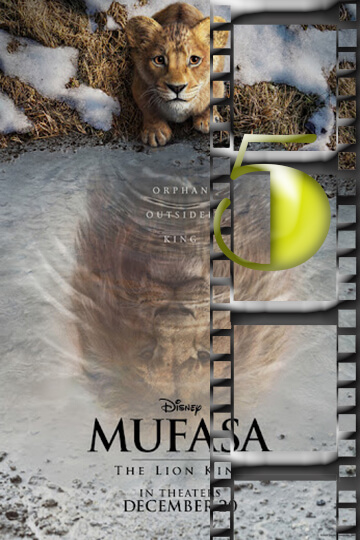

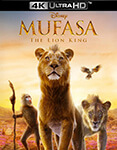
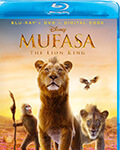
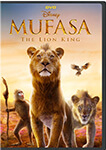
What’s It About
Mufasa: The Lion King is an upcoming American musical drama film directed by Barry Jenkins, written by Jeff Nathanson, and produced by Walt Disney Pictures and Pastel Productions. It is the live-action styled photorealistic animated prequel to the similarly created 2019 remake of the original 1994 film The Lion King. Having become king of the Pride Lands, Simba is determined for his cub to follow in his paw prints. At the same time, the origins of his late father, Mufasa, are explored. The prequel about the rise of one of the greatest kings of the Pride Lands goes back to the African savanna, where Rafiki tells Kiara—daughter of Simba and Nala—the story of her grandfather while Timon and Pumbaa add color commentary.
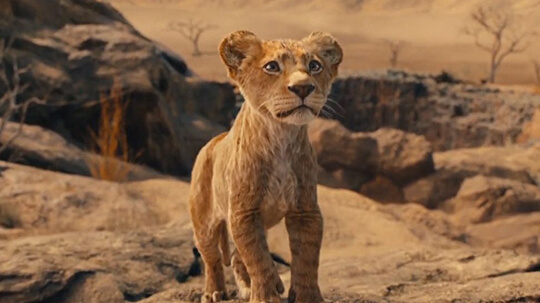
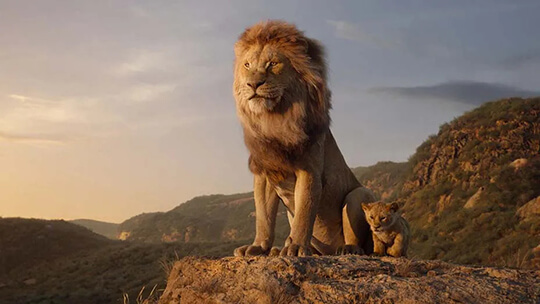
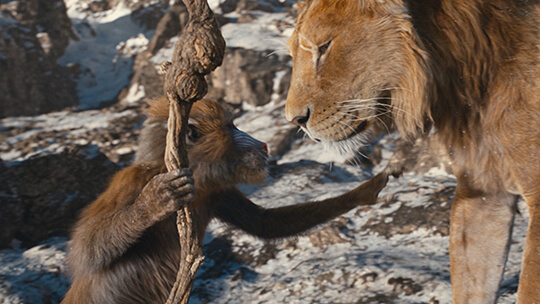
MOVIESinMO REVIEW
If you were blown away by how realistic the animals looked in the 2019 Lion King remake, get ready to be even more impressed by Mufasa: The Lion King. The CGI wizardry here takes things to a whole new level. You can see every strand of fur moving in the wind, watch muscles ripple under skin as the lions walk, and even catch the tiniest sparkles of light bouncing through water drops and ice crystals. The biggest improvement? The animals finally have expressions that don’t make them look like stuffed museum displays. When the camera zooms in on Mufasa’s eyes (with Aaron Pierre doing an excellent job with the voice), you can actually feel something there. That said, all this technical brilliance can’t hide the fact that the movie’s missing that special something that made the original Lion King so magical. Let’s talk about the story, which honestly feels like it’s answering questions nobody was lying awake at night wondering about. The plot follows young Mufasa, who loses his family and ends up in the care of a pride led by the strict but fair Obasi (Lennie James) and his kind-hearted mate Eshe (Thandiwe Newton). There, he forms a close bond with their son Taka – yes, that’s Scar before he became the villain we all know. Everything’s going fine until this group of intimidating white lions shows up, led by Kiros (Mads Mikkelsen, doing what he does best – playing a menacing bad guy). They start causing trouble, trying to take over the territory, and that’s when things really kick into gear. The whole thing is structured as a story being told to Kiara (voiced by Blue Ivy Carter), who’s Simba and Nala’s curious cub wanting to learn about her famous grandfather. This setup actually makes sense – after all, Kiara wouldn’t know any of the stuff that happened in the first movie. But it creates this weird situation where the film keeps winking at the audience with references to future events. There are so many scenes of lions dangling from cliffs that you can’t help but think, “Okay, we get it – this is foreshadowing Scar’s big betrayal moment.” Barry Jenkins, known for smaller, more artistic films, takes the director’s chair this time around, and you can tell he’s trying to bring something different to the table. He adds these beautiful visual touches that would probably work better in a live-action movie with actual actors. The problem is, when you’re dealing with photorealistic CGI animals, those tender moments between characters end up feeling weirdly distant, like you’re watching a really high-end nature documentary where the animals just happen to be talking. The music situation is interesting too. Lin-Manuel Miranda, the genius behind Hamilton, steps in to create new songs, but lightning doesn’t strike twice here. None of the new numbers come close to the earworm status of classics like “Hakuna Matata” or “Can You Feel the Love Tonight.” The movie keeps falling back on Hans Zimmer’s original score from the 1994 film, and while that music still gives you goosebumps, it feels a bit like cheating – like when you recognize a feeling from an old song rather than the moment you’re actually watching. The action scenes run into a unique problem: they’re caught between two worlds. Because everything looks so realistic, the lions can’t do the kind of exaggerated, fun stuff you’d see in animation – no impossible leaps or cartoon physics here. But since it’s still a Disney movie aimed at kids, they also can’t fight like real lions would (which, let’s be honest, would be pretty intense). Jenkins tries to spice things up with elaborate camera movements, but in a completely digital world, even the fanciest camera swoops feel about as exciting as moving your mouse across a screen. There is one exception though – an underwater fight scene that actually works because it breaks free from these limitations and lets the characters move in ways that feel dreamlike and magical. The movie also ties itself in knots trying to handle its messaging about monarchy. On one hand, it wants to be modern and suggest that maybe this whole “divine right to rule” thing is outdated. But then it turns around and makes Mufasa special by giving him these almost supernatural abilities to sense things other lions can’t. And don’t get me started on Timon and Pumbaa – they keep popping up to crack jokes and reference the original movie, but it feels forced, like someone’s nervously trying to remind you that yes, this is still The Lion King. Bottom line? If this had been released as a traditionally animated sequel back in the Disney afternoon era of the ’90s, it would’ve been a perfectly fine movie to keep kids entertained. But as a big-budget CGI spectacle in today’s world, it just shows that maybe Disney needs to let The Lion King rest for a while and come up with some fresh ideas instead of trying to squeeze more story out of characters we already know. The technical achievements are impressive, no doubt about it. But sometimes you have to wonder if all the computing power in the world can replace good old-fashioned storytelling magic.
OUR RATING – A CATASTROPHIC 5
MEDIA
Genre – Family
Street date
Digital – February 18, 2016
4K/Blu-Ray/DVD – April 1, 2017
Video – 1080p
Screen size 1.85:1
Sound – English: Dolby Atmos, Spanish Dolby Digital 5.1
Subtitles – English SDH, Spanish, French
Extras
- Sing Along with the Movie
- Song Selection
- Finding Milele: The Making of Mufasa: The Lion King (HD 13:53)
- Songs of the Savanna (HD 8:40)
- Ostrich Eggs With Timon & Pumbaa (HD 4:31)
- Outtakes (HD 2:15)
- “I Always Wanted a Brother” IRL (HD 1:17)
- Deleted Scenes (HD 5:13)
- Who’s The Mole Rat?
- What Do You Feel In There?
- Have Faith In Her
- Taka’s Dream
- Protect the Pride (HD 1:34)

